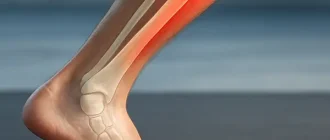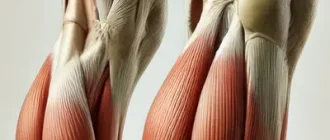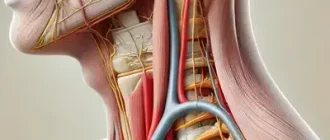There are many options to choose from, including steroids, anticonvulsants, and physiotherapy. You should also consider the risks associated with each option, which are listed below.
Do OTC pain relievers help with a herniated disc?
Whether you are suffering from a backache or a slipped disc, there are a number of OTC pain relievers available to help you relieve pain and inflammation. Pain control is important so you can stay active and keep up with your daily activities.
The first step is to consult with your physician to determine a treatment plan that is right for you. Treatment options include physical therapy, corticosteroid injections and medication. NSAIDs, which are non-steroidal anti-inflammatory drugs, are effective at reducing inflammation and back pain.
NSAIDs reduce pain by inhibiting the COX enzyme. NSAIDs are available without a prescription, but you should consult a healthcare professional before taking any medications. You may also have blood tests to identify infections, osteoporosis, or other conditions that are causing pain.
If you have severe pain or if the nonsurgical treatment options aren’t helping, your physician may recommend an epidural corticosteroid injection. The injection reduces pain by reducing inflammation around the nerves in the back. The injection is performed under local anesthesia. The pain usually disappears within a few days.
Using heat or cold compresses on the affected area can help relieve pain. In addition, a warm compress relaxes the muscles and improves blood flow.
Another option is to use a prescription muscle relaxant. These medications can help relax spasms and allow you to move more easily. These drugs are typically prescribed for a week or two.
If you’re struggling with a herniated disc, a physical therapist can teach you techniques to strengthen your core muscles. This will help relieve pressure on your nerves and improve your posture.
Opioids
Despite being a drug of choice for many, opioids are not considered the best painkillers for a herniated disc. While they are effective in treating acute pain, their long-term effects can be risky. Opioids can also cause addiction.
Opioids are drugs that work by blocking brain signals that trigger pain. This results in pain relief that may last four to six weeks. They are also used to treat post-surgical pain.
Opioids can also be used to treat chronic pain. However, they should be used under the supervision of a physician. They are also known to have a high potential for abuse.
Opioids are often prescribed in conjunction with other medications to manage pain. They can be found in many forms, including tablets, lozenges, and injections.
Opioids are also available as an extended-release form, which can make them even more effective. Fentanyl is one of the strongest opioids available. It is also available in an extended-release form, as well as in a nasal spray and lozenge.
Steroids
Disc herniation is a painful condition that can cause back and neck pain. It is caused by a herniated disc that pinches a nerve. Several medications can be prescribed to help relieve the pain.
Some studies have shown that steroids can provide greater pain relief than other medications. However, there are also potential negative side effects.
These include the breakdown of cartilage and skin. You may also experience an overactive immune system. You should consult your doctor before starting a new medication regimen.
There are also other options for treatment of herniated discs. One method is using OTC NSAIDs. A corticosteroid injection can also help relieve back and neck pain. Typically, these injections are performed under local anesthesia and take about 30 minutes. Several individuals have reported that these injections relieve their pain.
Anticonvulsants
Whether you are suffering from chronic back pain or a herniated disc, there are several types of painkillers that can help relieve the pain. These include non-steroidal anti-inflammatory drugs (NSAIDs), muscle relaxants and benzodiazepines. You should always consult your doctor before taking any medications. Depending on the severity of your pain, your doctor may prescribe you a short course of prescription pain relievers.
NSAIDs are often used to treat acute pain, but they can also reduce inflammation. They are also used to treat inflammation after surgery, which may help relieve pain. However, they can also cause ulcers and increase the risk of heart attack.
Benzodiazepines can also relieve pain, but they have side effects. They block chemicals in the brain that are involved in pain perception.
Physiotherapy
Physiotherapy is a safe, non-invasive approach to treating a herniated disc. It focuses on a holistic approach, involving a variety of treatments. This approach helps relieve symptoms and prevent further injury. It is one of the most effective ways to treat a herniated disc.
Physiotherapists will design a personalized treatment plan for you. This includes exercises to strengthen and improve core stability, flexibility, and mobility. The physical therapist can also teach you how to improve your posture and reduce pain. You can also learn body conditioning exercises to prevent future injuries.
You may also need to take time off work or avoid activities that put stress on your spine. Some people have to take bed rest for several days or even weeks. You may need to avoid lifting heavy objects.
Alternative and complementary treatments
Disc herniation is a painful condition that occurs when the soft inner layer of a disc ruptures through the outer rubbery layer. This irritates nearby nerves. It may also lead to pain in the arm or leg.
Herniated discs can be diagnosed by a physical exam. In addition, an MRI scan may be ordered to identify the location of the herniated disc and to check for nerve damage.
Depending on the severity of the pain, patients may need to take prescription pain relievers. Nonsteroidal anti-inflammatory medications (NSAIDs) may also be used. These medications can be prescribed for a short period of time (a week or two) to help with the pain.
Massage therapy is also an effective method for treating pain from a herniated disc. Massage therapy involves manipulation of the back region to increase blood flow. Increasing blood flow increases the amount of oxygen and nutrients that reach the problem area.







